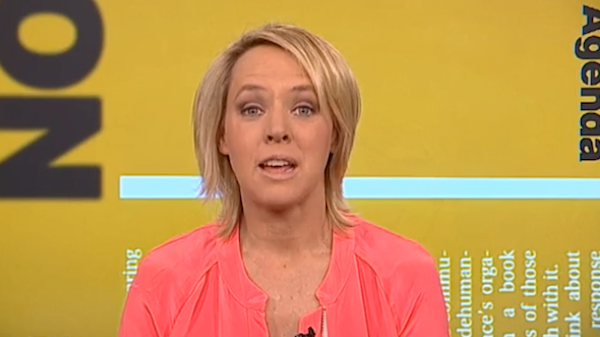My earliest political memory was from when I was 10 years old.
I remember hearing bits of Pauline Hanson’s maiden speech on television, stating that Asians “have their own culture and religion, form ghettos and do not assimilate.” It was the first time I felt like I didn’t belong, that I was not really Australian, and never could be in the eyes of others.
You don't forget what it feels like, and it was only afterwards that I really started to notice the racist undertones in public discourse.
Until recently, I thought we had moved past most of the anti-Asian (and particularly anti-Chinese) sentiment of the late 1990s. Sadly, I have been proven wrong.
You can hear similar protestations today but they are couched differently. Susie O’Brien’s column about cashed-up Chinese nationals taking over suburbs near good schools is a good illustration of how this discourse now plays out.

As a “Chinese” person who owns property in the inner suburbs of Sydney, who went to a selective school, and who shops at a local Asian grocery store with signs in two languages, I must be Susie O’Brien’s worst nightmare.
In her column, O’Brien displayed the thinly veiled anti-Chinese sentiment that you see in “respectable” media outlets, including Fairfax. It covers-up a fear by the conservative upper-middle class about a loss of their privileged position.
The rhetoric reminds me of NIMBYism, except with racist undertones. The racist (and classist) feelings are dressed-up in concerns about cultural change and unfair processes that prevent the pursuit of educational opportunities and access to housing.
The inability of young people to afford housing where they grew-up is a well founded concern, but those complaining about new Chinese neighbours don’t focus on the government policies that have driven up prices such as the 50 per cent capital gains tax discount, negative gearing, or planning laws.
Media reports and public concern about “the Chinese” driving up property prices gloss over the obvious point that you can be ethnically Chinese and also an Australian citizen. The idea that someone who is speaking in Mandarin (possibly to their parents) or looks Chinese must be a foreigner reinforces the idea that to be considered Australian, you must be a white English speaker without an accent.
It’s not as if Chinese migration to Australia is new; China has been our largest source of migration since 2010-11, before the current boom took off.
There is a particular reason why the upper middle-class is so concerned about “the Chinese”. Recent migrants and their children are far wealthier and more privileged than Chinese migrants have been in the past.
The complaints are occurring because properties being bought are in the inner ring of more affluent suburbs. The Chinese nouveau riche are migrating, becoming Australian citizens, and moving into “their” areas.
The established upper-middle class do not like the demographic change and are uncomfortable with the fact that these migrants – who are not the same as them culturally and do not value their upper-middle class traditions or institutions – are their socio-economic equals, not the less well-off Asian migrants they have been used to.
The rhetoric used about Asians in secondary and tertiary education is very similar.
Recently there have been stories in Fairfax papers about selective schools becoming “full of Asians” (they're taking over!) who go to coaching colleges and are not “well-rounded”. These stories have been doing the rounds for over a decade, including when I was still at high school.
The most notable example was a complaint by the Old Boys of Sydney Boys High, who were concerned the school wouldn't have a first grade rugby team if Asian enrolment increased.
Similarly, there was a media frenzy over a decade ago about the number of Asians being accepted to medicine solely based on their university admission scores. They too were accused of not being “well-rounded”. The term pops up again and again to delegitimise their place.
In both cases, the rhetoric implied an unfair process was allowing Asians to take over, leaving other (non-Asian) kids to miss out as a result. The answer proposed was to change the selection process, not to address underlying causes such as concerns about social mobility, or by expanding access to quality public education.
None of this is to say that housing affordability is not a problem and access to quality public education is important. But the current rhetoric, laden with racist undertones, is being used because sections of the upper-middle class are finding that their privileged position is being undermined and they do not like it.
Many do not suggest or support solutions that would actually improve housing affordability or make quality education more accessible for the vast majority because they do not care. Those decrying the current situation and blaming “the Chinese” should be called-out on their privilege and concern with maintaining it for themselves.
Donate To New Matilda
New Matilda is a small, independent media outlet. We survive through reader contributions, and never losing a lawsuit. If you got something from this article, giving something back helps us to continue speaking truth to power. Every little bit counts.



